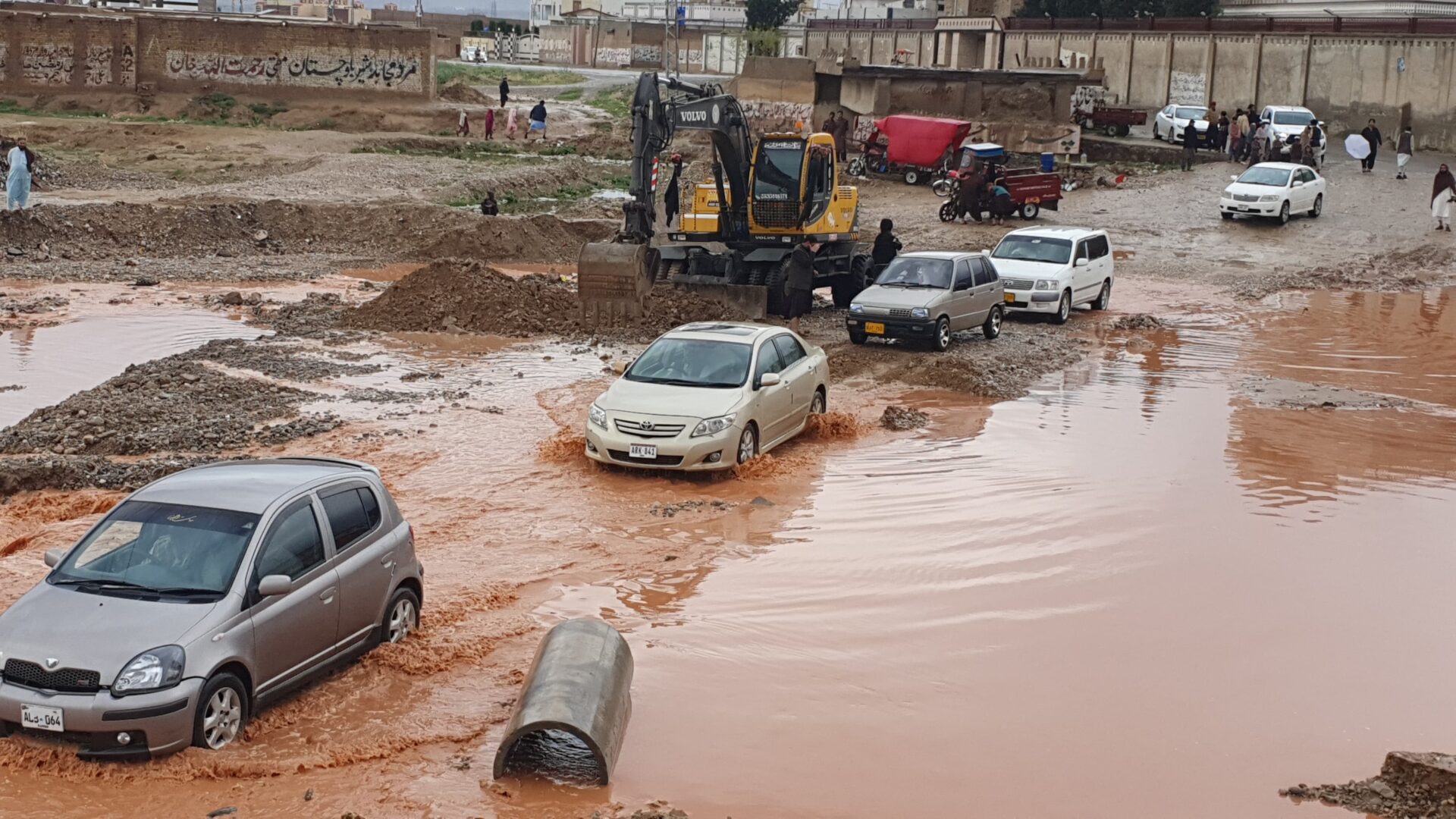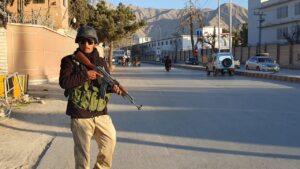Behram Baloch:
GWADAR: In a merciless onslaught, recent heavy rainfall has unleashed flash floods across Pakistan’s coastal belt, leaving a trail of destruction in its wake. Gwadar, the bustling port city, bore the brunt of nature’s fury as almost all public and private buildings succumbed to the deluge, paralyzing life in its wake. Pasni and other parts of Mekran have not been spared, with communities reeling from the catastrophic aftermath.
Heart-wrenching videos circulating on social media depict the desperate scenes of men wading through waist-high waters, laboriously shifting their belongings to higher ground in a bid to salvage what they can amidst the chaos. The inundation has spared neither the sacred halls of education, as almost all private and public schools lay submerged under the relentless floodwaters.
Tragically, the toll of this natural disaster continues to rise, with Balochistan bearing the heaviest burden. Shahid Rind, the government spokesman for Balochistan, confirmed the loss of nine precious lives due to the floods. Additionally, a staggering nine individuals have been injured in rain-related incidents, further exacerbating the human toll.
The government has swiftly responded to the crisis by declaring a state of emergency, mobilizing resources to mitigate the unfolding disaster. However, the scale of destruction is daunting, with 40 homes completely destroyed and 80 others partially damaged by the ferocious downpour. The impact extends beyond residential areas, as vital infrastructure, including roads and highways, lie ravaged, halting essential traffic and communication networks.
As Pakistan grapples with the aftermath of this calamity, concerted efforts are underway to provide relief and support to the affected communities. Yet, as the waters recede, the true extent of the damage emerges, underscoring the urgent need for sustained solidarity and resilience in the face of nature’s fury.






